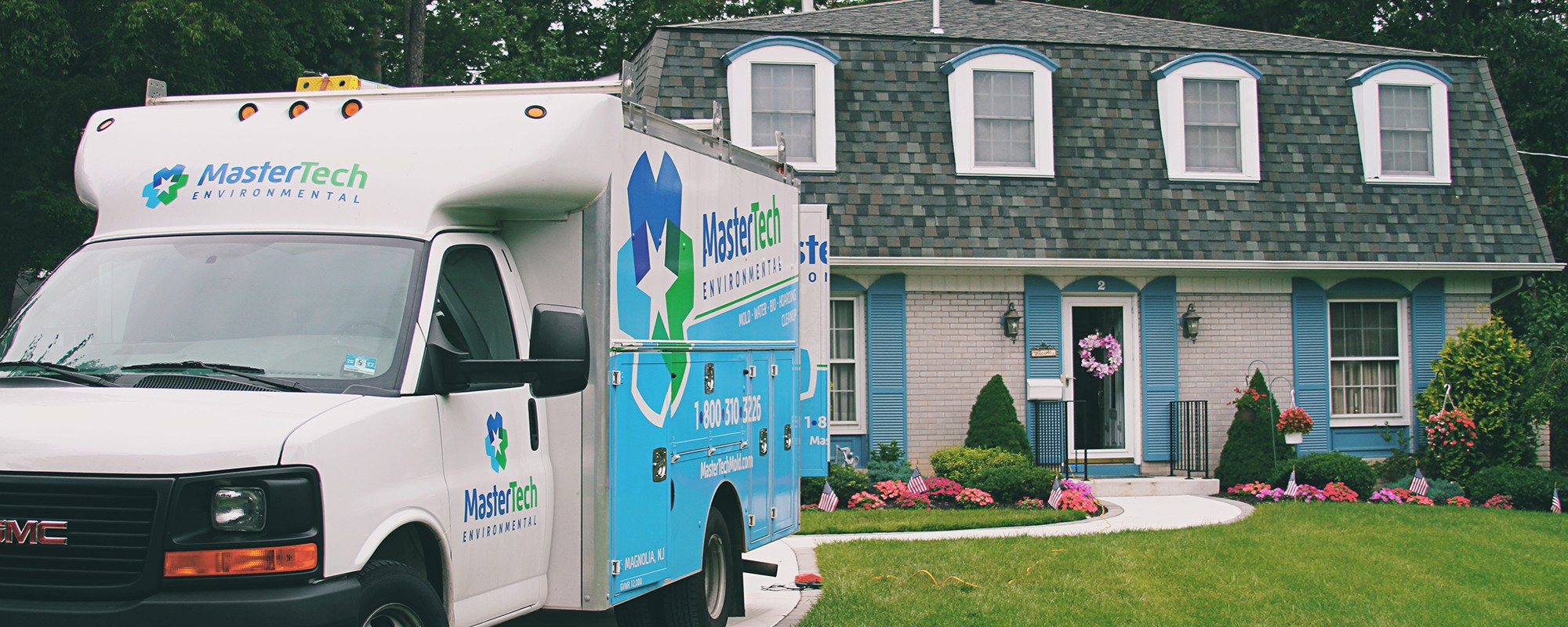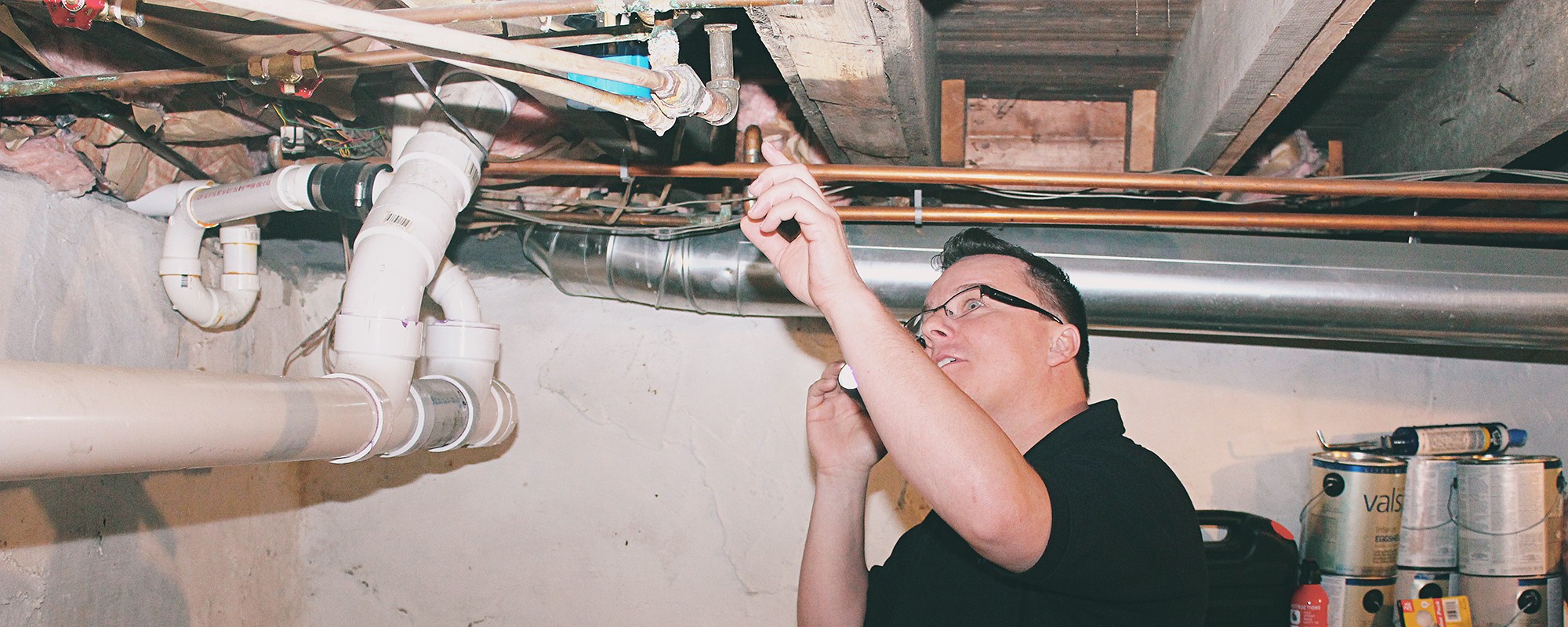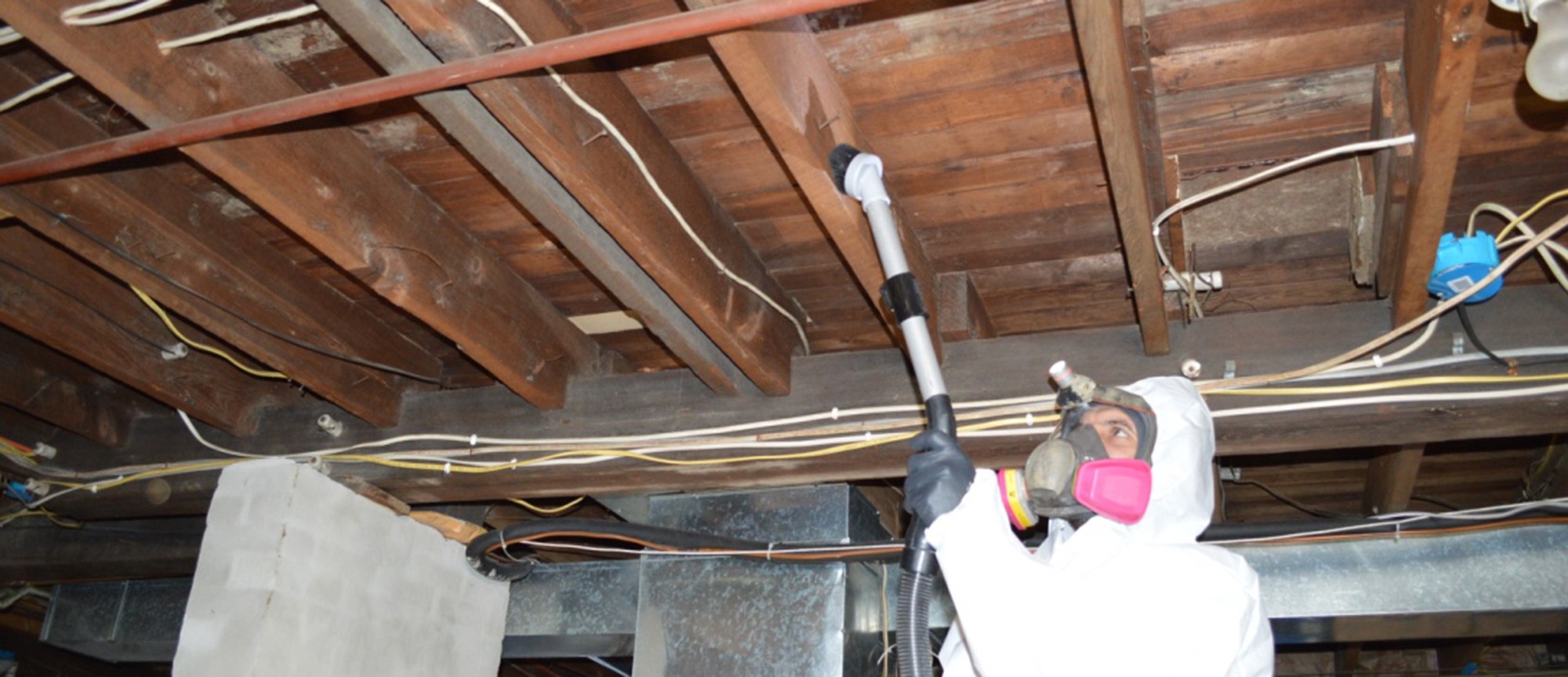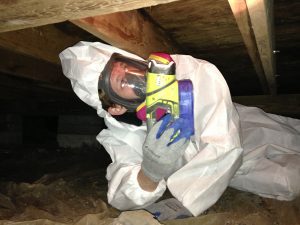Most Common Areas for Indoor Mold Problems In New Jersey Homes & Businesses
Knowing where to look is a key component to moisture control and mold prevention. In order to effectively minimize humidity and control moisture buildup, first, you need to know areas are vulnerable. Attics, basements, crawl spaces, kitchens and bathrooms are some of the most common areas for indoor mold growth due to the tendency for moisture buildup in these areas. New Jersey homeowners need to pay close attention and conduct thorough, routine maintenance checks in these spaces for signs of moisture buildup and possible mold.
1. Attic Mold Problems
Attics are one of the most common areas for indoor mold growth. Factors like poor ventilation, improper insulation, heat, humidity and condensation can cause moisture buildup and sustain attic mold growth in your New Jersey home.
- Poor ventilation- The strategic installation of the correct combination of soffit vents, ridge vents and/or gable wall vents is key to allowing the right amount of air circulation and proper ventilation. However, incorrectly installed vents or the wrong combination of vents can have adverse affects and lead to moisture buildup. Additionally, vents need to be free of obstructions and blockage at all times. Issues can arise if excess insulation is obstructing your vents or if stored items are blocking your vents.
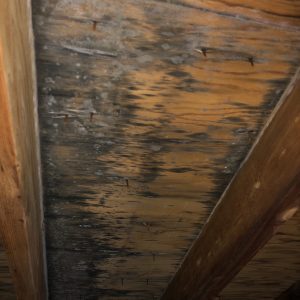
- Improper insulation- Your insulation has one job – to minimize warm or cool air loss from the floor below. That is it. It is not intended to keep the roof or attic walls warm. Improper insulation installation causes moisture from the lower levels of the home to rise and become trapped in the attic.
- Heat- As warm air naturally rises into your attic from your main living space, it needs to escape through strategically installed vents. If your New Jersey attic is not sufficiently ventilated, is overly cluttered or is overly insulated, that hot air can get trapped in your attic space. This can lead to humidity issues and condensation issues that can eventually cause a mold problem.
- Humidity- Excess humidity is a common problem in New Jersey attics. Again, this is often the side effect of a combination of poor ventilation, improper insulation or excess clutter. South Jersey homeowners should regularly monitor relatively humidity levels in the attic space to avoid moisture buildup on the attic building materials.
- Condensation- If your attic is trapping warm air, this can cause condensation to develop on your attic sheathing and leave you with damp building materials during cooler climates. The hot air trapped against your interior attic sheathing is cooled quickly by the cold outside temperature, and the rapid and dramatic drop in temperature forces water vapors to change from a gaseous state to a liquid and leave you with condensation.
Attics may be one of the common areas for indoor mold growth, that does not have to be the case in your home. NJ homeowners should take some time and consider the conditions of your attic and make the proper maintenance repairs to safe guard against moisture buildup and prevent attic mold development. In the event that you discover a possible mold problem during one of your maintenance checks of your attic, an attic mold removal company in South Jersey can help.
2. Basement Mold Problems
Basements are notoriously damp and have poor air circulation, not to mention they present a high risk of water seepage through your foundation walls. Consistent moisture issues have put basements right up there with attics as some of the most common areas for indoor mold growth. Without effective moisture control, you could be at risk of basement mold growth in your NJ home. Once mold takes hold in your basement, it can spread quickly due to conducive conditions.
- Poor air circulation- Most New Jersey basement have very minimal air exchange. Because of this NJ basement are often especially susceptible to moisture buildup over time if a homeowner is not careful and do not address water presence immediately.
- Leaking or seeping through foundation walls- Or other water intrusion through your foundation walls due to foundation damage. Often times, basement foundation walls are underground and prone to seepage or leakage moisture through tiny pores and cracks. Most NJ basements are constructed of cinder block, poured concrete or rubble walls, and unless they’ve been properly waterproofed – they will eventually leak. When your foundation wall is leaking, ground water under pressure from the soil outside (hydrostatic pressure) is being pushed through your foundation walls.
- Flooding- Some South Jersey properties can be especially vulnerable to flooding. If your property is frequently and easily flooded, water can seep through tiny cracks in the foundation, or intrude your basement’s doorway/window. Trapped moisture then evaporates, which elevates humidity, and provides a perfect place for mold to invade.
- Humidity- Again, once water in the basement evaporates it raises the humidity level in the basement. The humidity then usually stays high thanks to lack of air circulation and no sunlight. When the relative humidity of your basement exceeds 50%, your basement can be at risk for mold growth.
Regularly assess your NJ basement for signs of moisture. If you detect a basement moisture problem early one and properly address it right away, you can prevent mold development and avoid costlier repairs. It is important to conduct regular foundation maintenance checks to make sure that your foundation walls are in good condition. Homeowners should try to address foundation problems right way before they get worse. If you detect signs of moisture and possible mold, contact a basement mold remediation company in New Jersey for an assessment.
3. Crawl Space Mold Problems
Crawl spaces can be especially vulnerable to moisture buildup from events like elevated humidity, seepage and/or water intrusion. If you are not careful, you could be inviting crawl space mold into your New Jersey home.
- Water vapors- If your NJ home is built on a dirt or sand floor crawl space, you might need a crawl space vapor barrier. Dirt or sand naturally hold onto water. The moisture from your dirt or sand floor crawl space will normally evaporate into the atmosphere, these water vapors will rise with normal air currents in you crawl space, and eventually wind up clinging to your wood floor joists, sub-flooring and insulation.
- Flooding- In areas where the water table is high and weather conditions are suitable, ground water can penetrate a crawl space can cause flooding.
- Water Intrusion- Foundation walls should be well-maintained and properly waterproofed to prevent water intrusion through your crawl space walls. If your foundation walls are compromised in anyway, water can slowly seep into your crawl space and collect, leaving your New Jersey home vulnerable to crawl space mold growth.
- Humidity- Like your basement or attic, your crawl space can be especially susceptible to high humidity. Between the moisture emitting from your ground soil, improper ventilation and a variety of other factors, it can be very difficult to maintain a health relative humidity level of 50% or less.
When it comes to your New Jersey crawl space and mold problems, it is important to keep in mind that air travels bottom-up. So, any moisture formed in crawl spaces will be carried by the moist air upwards to your living spaces naturally (or mechanically through the HVAC system), which can lead to mold growth beyond just the crawl space. If you suspect possible mold growth in your crawl space, contact a crawl space mold remediation company in New Jersey to properly assess the space and recommend an effective cleanup solution.
While mold development can occur anywhere in your New Jersey home as long as there is an adequate moisture source present, spaces like your attic, basement and crawl space are some of the most common areas for indoor mold problems due to the conditions typically found in these spaces. To learn more about attic mold removal, basement mold removal or crawl space mold removal in your South Jersey area, contact Mastertech Environmental.

